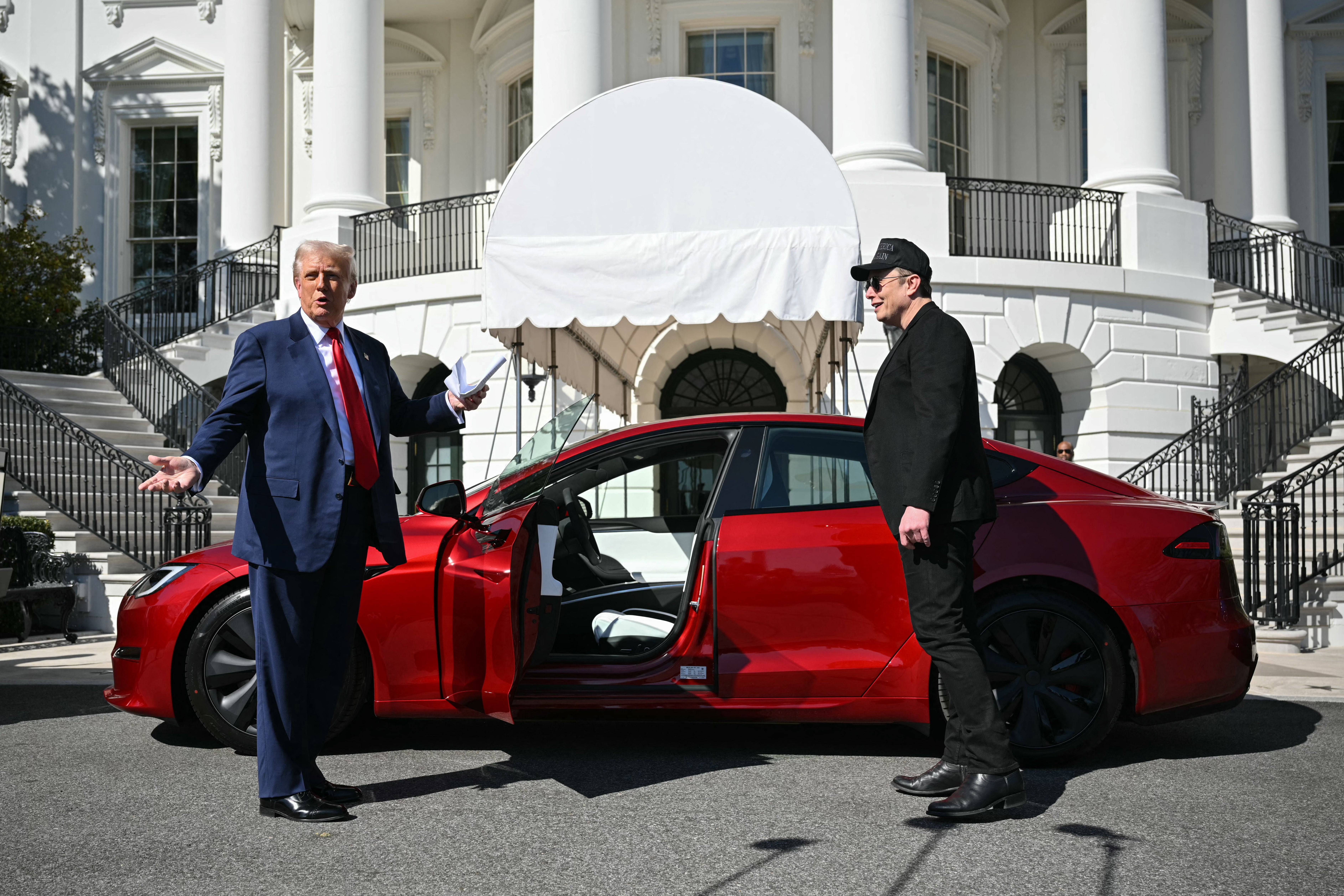Does anyone really want a Chevrolet in downtown Doncaster?
No matter what US manufacturers have tried in the past, many American car brands simply aren’t to British tastes – or to our parking spaces, writes Sean O’Grady

At the very considerable risk of the consequences of trying to be fair to Donald Trump, I wonder if, on the very specific case of tariffs on cars, the guy has a point? The US imports a fair quantity of fine-quality British vehicles, and, until very recently, added an import tax of just 2.5 per cent of the cost – a trivial consideration in any case for the price-insensitive owners of Bentley Continentals, Rolls-Royce Ghosts, and Range Rovers.
In return? The British, with all their post-Brexit freedoms, continue to slap the same tariffs on imports of American-manufactured vehicles, a rate inherited from EU membership. Well, you have to ask yourself; was that fair? Of course, under the mad plans announced by Trump a couple of weeks ago, the American tariff has been ramped up to 25 per cent, which is hardly just either; but the point still stands.
So Rachel Reeves offering to cut the UK tariffs as part of a wider trade deal with the US is not a bad idea. Superficially, at least, it is also quite a smart one, because UK imports of “traditional” American vehicles are in any case tiny, and aren’t likely to explode in the short term – so, at first glance, she isn’t giving much ground away here. Indeed, there are very good reasons, much more significant than the tariffs, for why American cars have traditionally not been that popular in the UK: historically they’ve been oversized, over-chromed, under-engineered and over here.
The few imports that did arrive wearing their classic nameplates never won the reputation for durability that the German makes did, nor were they as reliable as all those Toyotas and Mazdas. Indeed, such factors, and not tariffs, lie behind the long-term decline in their own home markets of the American “Big Three” – General Motors, Ford and Chrysler.

Yank tanks. Gas guzzlers. Gaudy gargoyles. They tried everything, including GM rebadging tiny Korean Daewoos as Chevrolets, launched without success on a bemused car-buying public. They dressed up a Saab as a Caddy, to no avail; and, after a brief fad inspired by their use by the US military in Iraq, the massive civilianised Humvees have also disappeared from British roads. Such cars just didn’t appeal to European tastes and were never understood. Not even the handsome Chrysler 300C, a large saloon inspired by the Rover P5 and partly based on Mercedes-Benz components, and which did enjoy sales success in the early 2000s, could build critical sales mass.
The most prominent American-brand cars on sale in Britain today trade heavily on their American heritage and glamour – the latest generation of the Ford Mustang, complete with lazy five-litre V8 (Flat Rock, Michigan) and the famous Jeep Wrangler (Toledo, Ohio). Both are magnificent artefacts of American culture; neither is good for the planet or sells that well. And that’s about it for that kind of American automotive presence in Britain – and it wouldn’t change much under different tariffs.
But that is not the end of the story. Because of globalisation much has changed in the American industry, and some of it invisibly. For example, a much more significant importer of American cars to Britain these days is … BMW, which brings in X5 SUVs, a common enough sight on our roads, from Spartanburg, North California. They have German-made engines and other bits, but they are “American” cars acceptable to European tastes. Or take the all-electric Ford Mustang Mach-E SUV (which doesn’t have much in common with the sports coupe). That’s assembled in Mexico, but, thanks to the free trade deals signed by Donald Trump, has components from the United States too.
Or, even more to the point, there’s the Tesla. It just so happens that all the many Tesla models sold in the UK, almost ubiquitous in some cases, are shipped in from China and Germany, but there’s no reason why these Muskmobiles couldn’t be sourced from his expanding operations in the USA. Aside from the Cybertruck, which apparently nobody wants, they’re not laughably big, and have zero CO2 exhaust pipe emissions. There are now obviously very different, politically driven image reasons why sales of Musk’s “swasticars” have collapsed; but if Toyota bought out Tesla no one would object to these Yankmobiles.
With minimal tariffs on US imports, whatever their badging, British motorists could have more choice and cheaper personal transportation than would otherwise be the case. The market would evolve, as it always does, and, in return, more UK-made products could win a following in the States – where car buyers are much more open-minded and less snobbish. On this at least, Reeves is steering in the right direction.
Join our commenting forum
Join thought-provoking conversations, follow other Independent readers and see their replies
Comments